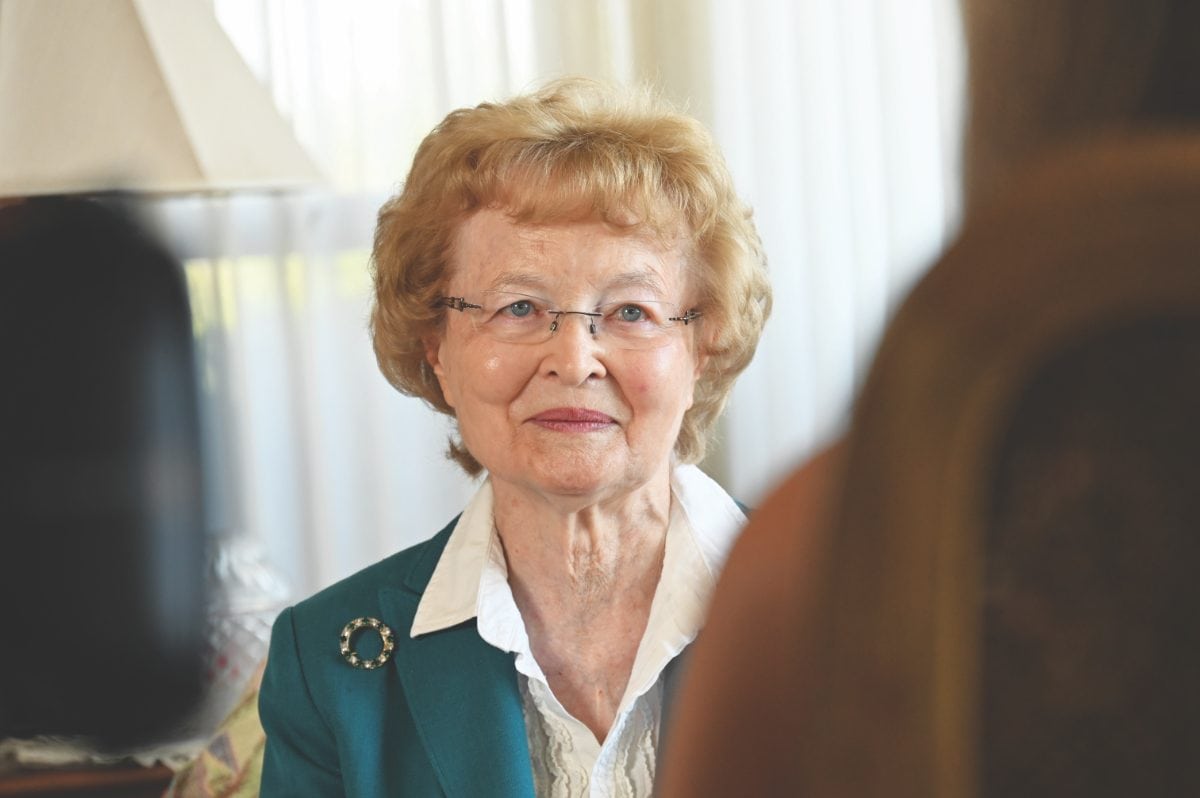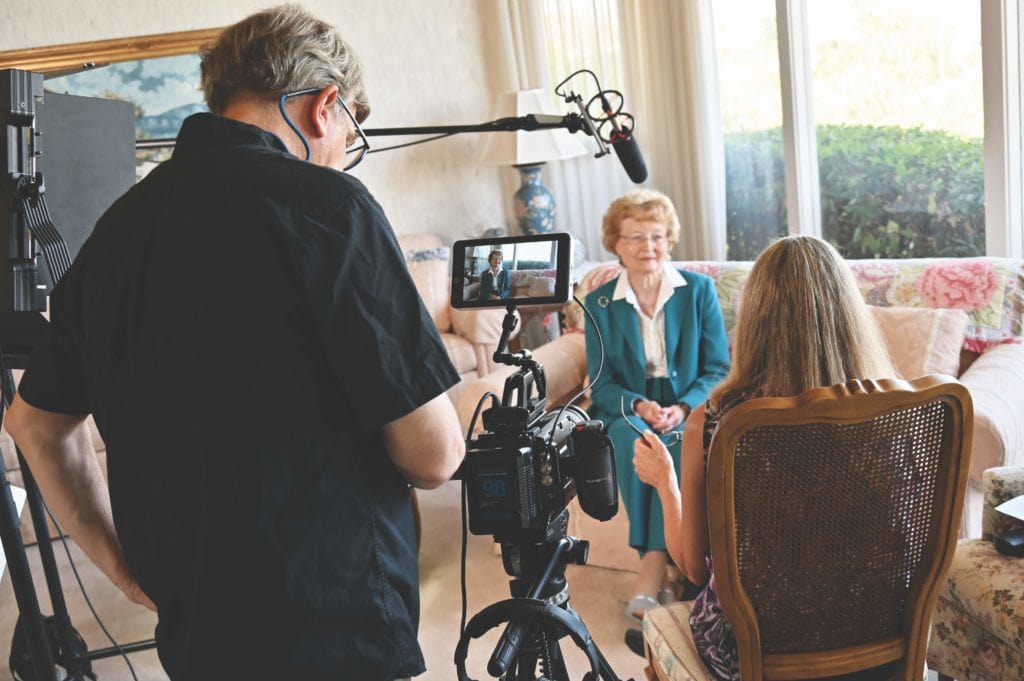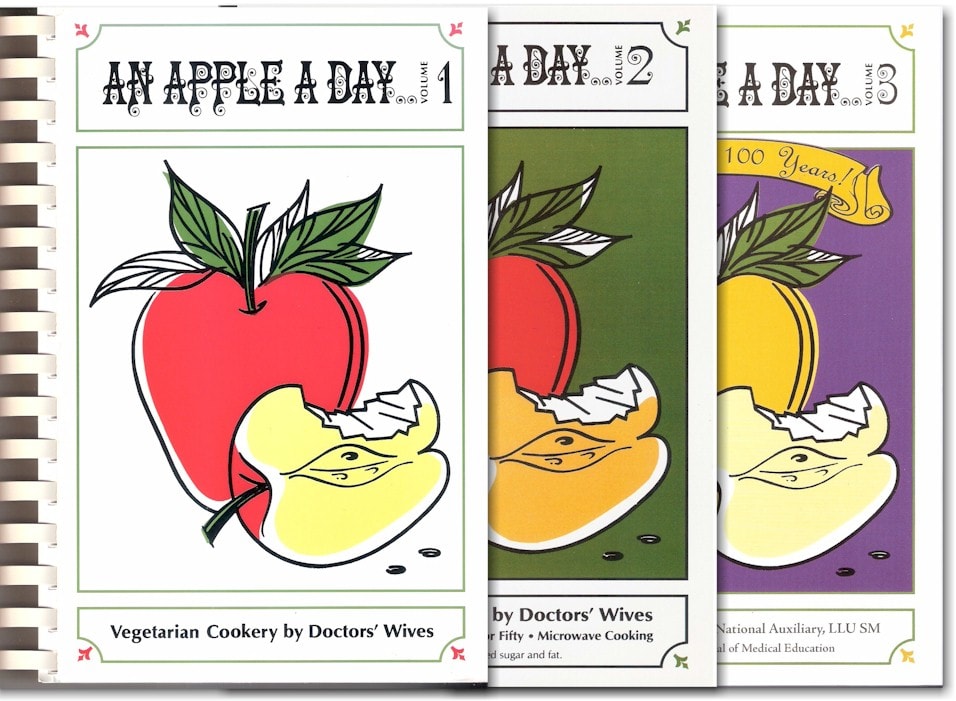
“Tell me you’re Adventist without telling me you’re Adventist!” One of many possible answers may be a fond mention of Special K Loaf (mixed with sudden pangs of hunger and a twinge of nostalgia). Not the deepest answer, but certainly the tastiest.
Meet Georgia Hodgkin, the dietician extraordinaire and editor of volumes two and three of the iconic An Apple A Day cookbook series that has significantly influenced multiple generations of English-speaking Adventist food culture in North America and beyond — of which Special K Loaf, or Cottage Cheese Loaf as some refer to it, is a prominent fixture.
Though the editors of volume one, where the original Special K loaf recipe first appeared, were Marguerite Smith and Marcella Griggs, Georgia was instrumental not only in editing volumes two and three but also through her overall involvement in the series. Apart from her work as a professor of nutrition and dietetics at the School of Allied Health Professions at Loma Linda University (LLU) in California, United States, she became a prominent voice in the vegetarian nutrition space in the U.S. during a time when vegetarianism was not just thought to be insufficient for good health but outright quackery.

“Apple A Day started in 1967 when people used to say, ‘Vegetarian diets are crazy. You can't possibly be healthy on a vegetarian diet,’ ” Georgia, who retired in 2020 after 42 years, recalls. “But history, science, and the Adventist Health Study have shown that we are healthy on those ‘crazy diets,’ ” she says with a laugh. “Marguerite and Marcella produced a cookbook of tasty, healthful, delicious recipes, and it has grown into a whole series.”
Indeed, it was the recipes of these “crazy vegetarian diets” that skyrocketed in popularity at church potlucks, institutional cafeterias, and Sabbath lunches in North America from the 1970s onward. Just ask almost any Adventist Baby Boomer or their Generation X child, and they may well have a fond food memory to share that originated somewhere deep in the now yellowing pages of a treasured An Apple A Day cookbook (looking at you, volume one).
The fact that the books were vegetarian during a time when vegetarianism was unheard of, oddly enough, also contributed to their popularity. “It wasn't until Mervyn Hardinge [founding dean of the LLU School of Public Health] got his PhD at Harvard and did his dissertation comparing meat diets to vegetarian diets that it became clear vegetarian diets could provide complete nutrition,” Georgia says. “These cookbooks are good because they speak to many of the principles that Ellen White spoke to that other cookbooks are completely oblivious of. And the recipes are simple, easy to make, with readily available ingredients.”
Georgia shared some of her memories of working on the cookbooks. “I was asked to be president of the Loma Linda Chapter of the Auxiliary [publisher of An Apple A Day cookbooks],” she says. “We would meet in the alumni building around this huge conference table with a huge mound of scraps of paper with recipes on them, and we'd pull one out, somebody would read it, and say, ‘Yeah, I think, that looks good.’ ”
Georgia recalled one recipe in particular that didn’t make the cut. The recipe called for hiding a one-inch cube of pork in the middle of the otherwise vegetarian casserole. “Needless to say, that recipe went in the circular file,” she says with a laugh, referring to the recipe’s immediate trip to the wastebasket.

Each of the three volumes in the An Apple A Day series had its own unique theme. Volume one was published in 1967 during a time when vegetarian diets were not common, and though it was purchased mostly by Adventists, it made vegetarian “cookery,” as it was called, available to a wider audience.
Volume two was published in 1983, when the American Dietetic Association was emphasizing less salt, sugar, and fat. “The desserts in volume two have two teaspoons of sugar per serving, which is phenomenal,” Georgia says. “A piece of pie has many more than that.”
Volume three, which was published in 2009, looks at the history of the LLU School of Medicine, the Auxiliary, and the country. It is divided into decades and includes historic photos of the original Loma Linda hospital and the surrounding orange groves. Volume three was a celebration of the School of Medicine’s centennial anniversary, “the Auxiliary’s contribution to the celebration,” Georgia says.
Does the dietician herself have any personal favorites in all the recipes?
“I really enjoy the banana bread recipe from volume one,” Georgia says. “In volume three, the chocolate chip recipe is a ‘health cookie,’ It's full of walnuts and oatmeal. We'll forget that it has chocolate chips, which are mostly sugar, and just focus on the walnuts and the oatmeal. People really seem to enjoy it,” she says, laughing. “And there's a broccoli cheese casserole in volume two that's really quite tasty.”
And though she did not work on volume one, Georgia confirms what has been generally known for decades about its most famous recipe.
“The favorite recipe of all three cookbooks is Special K Loaf,” she said, to no one’s surprise, also citing the creator behind the recipe. “That is Betty Jutzy’s recipe. I envision that on Sabbath [Saturday] throughout North America there are cottage cheese loaves sitting on everybody's buffet table thanks to Betty.”
But apart from its cultural significance and popular recipes, the An Apple A Day series was also part of a worldwide health promotion ministry.
“A healthy diet is very helpful in our spiritual lives. I believe nutrition is the very foundation of health,” Georgia says. “Being healthy puts you in a frame of mind where spiritual things are of greater interest, and you can focus on them much better. Apple A Day cookbooks are popular because they follow the nutrition guidelines that were laid down in 1863 by Ellen G. White.”
Unbeknownst to many, the An Apple A Day cookbooks also play an important role in supporting medical missions, as all the sales benefit mission programs, which is a key function of the LLU Medical Auxiliary. According to Georgia, volume one alone has sold 200,000 copies, all of which benefited mission projects.
Part of the reason for the books’ popularity, and the way they became a staple in many Adventist kitchens, was that they were popular gifts for many years, such as birthday, housewarming, and particularly wedding gifts.
Georgia’s dedication and work across multiple generations has made an indelible impact on the very health and lives of countless people, not just through the vegetarian recipes themselves but through the fellowship and happy memories they have fostered. That counts too. And on and around the LLU campus, Georgia is known for her compassion, kindness, and dedication to students.
“Georgia is the kind of person that is someone you’d like to emulate professionally and personally,” Kent Chow, assistant dean for finance at the School of Allied Health Professions, said in a video interview for the scholarship set up in Georgia’s name.
“She has a way of letting you know that she cares about you and that she wants the best for your future,” Cindy Kosch, a former student and now assistant professor in the School of Allied Health Professions, said in that same video.
Georgia Hodgkin may have formally retired, but her life continues to be one of service. Only in heaven will the full impact of that love-driven service be fully seen.
“I’m not sure if my dad said this, or where I heard it, but you cannot outgive the Lord,” Georgia said.
The original version of this story was posted by the Pacific Union Recorder.